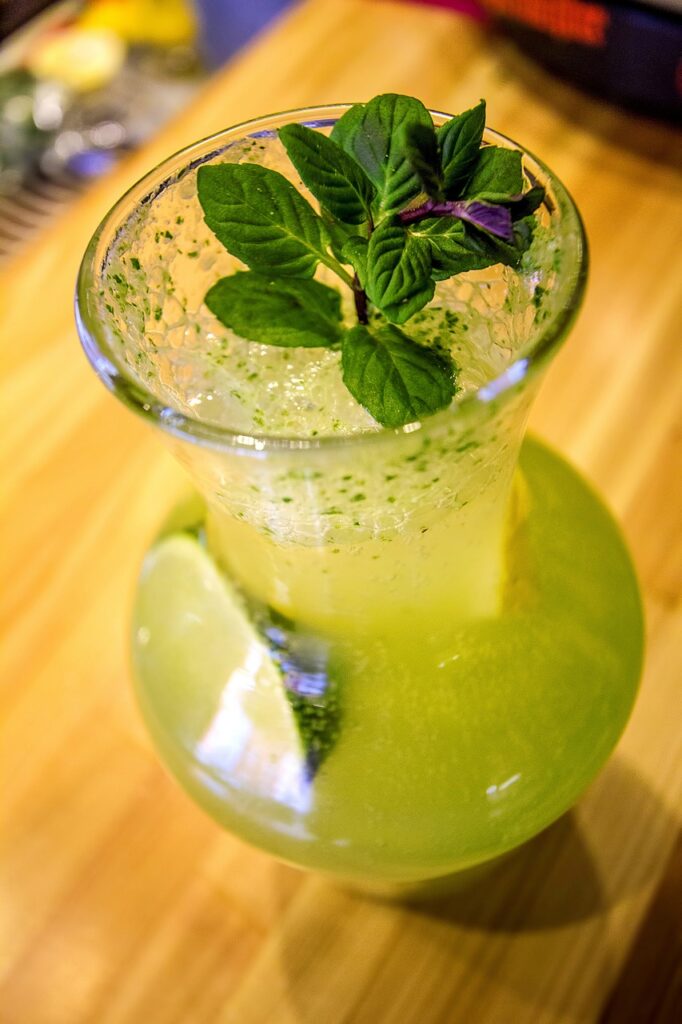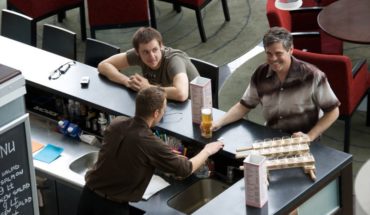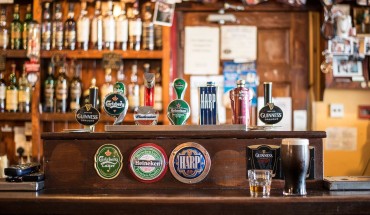
It’s no secret that the pandemic has made us rethink our approach to wellbeing and the lifestyle choices we make. The surge of the wellness trends goes hand in hand with the rise of non-alcoholic bars both in the UK and globally. This is a by-product of the emerging “sober curious” movement – a social phenomenon that views (not) drinking from a wellness perspective.
While up until the pandemic a pink martini might have been a bar classic, a pink lemonade with a twist has become the new cool. Bars all over the world are on a rebranding journey to please the sober-curious consumer, and new non-alcoholic bars are popping all over the country. The options are there, but the question is, would you try them?
Why more people are saying ‘no’ to alcohol
Dry bars are steadily becoming the new normal, and both the wellness craze and the pandemic are responsible for that.
Prior to the COVID-19 surge in 2018, Ruby Warrington, a 42-year-old Brooklyn-based British journalist, published her book Sober Curious: The Blissful Sleep, Greater Focus, Limitless Presence, and Deep Connection Awaiting Us All on the Other Side of Alcohol. In it, the author explores her victim-led relationship with alcohol and the command it has on her life. This is what Warrington refers to as “sober curious” – “a ‘wellness’ approach to (not) drinking alcohol”.
The book has inspired many to take their next drink with a pinch of mindfulness. Since its publication, the sober curious movement has been on the rise. It came about just at the right time – amidst the boom of wellness trends, sustainability endorsements, and a pandemic that forced us to change the way we think about our lives.
This lifestyle shift that is characterised by plant-based diets, self-care routines, and more “me time” has put a spell on today’s consumers, especially millennials. It’s now the norm to be following an organic lemonade recipe at home on a Friday night rather than showing your intoxicated dance moves on a sticky dancefloor.
The obsession with well-being and the lower consumption of alcohol reached its peak during the pandemic. According to Nielsen, millennials are headlining the sober curious movement, as 66% are trying to reduce their alcohol consumption in 2019.
Mocktails vs cocktails: a rebranding adventure
As more people are enticed by the sober-curious lifestyle, businesses, especially bars and restaurants, are responding to the new demand for zero-ABV beverages. A report by Bon Appétit predicts that the market for low and non-alcoholic beverages will grow by 32% between 2018 and 2022.
But simply re-introducing seltzers, non-alcoholic beer, and zero-ABV spirits won’t cut it this time. Young consumers are seeking better experiences through the products and settings they consume them in. Buzzwords such as organic, vegan, sustainable, and ethical are headlining their choices.
Existing businesses are urged to come up with creative rebranding strategies that accommodate the new consumer needs and overcome the stereotype around non-alcoholic beverages that labels them as bland, unexciting, and repetitive. By mixing exquisite flavours into mouth-watering blends, mixologists are now creating state-of-the-art mocktail recipes and nourishing drinks that are creative, trendy, and tasty all at the same time.
Think lemonade zest-flavoured immune-boost mocktails, a 0% alcohol lemonade vodka and passion fruit in a botanical blend, or a vegan lemonade with mint mojito packed with vitamin B12. And that’s just a few lemonade-style options – the possibilities for creative non-alcoholic beverages are endless.
Various bars, restaurants, and open spaces are hopping on the rebranding train by making their venues sober curious-friendly. Mother Kelly’s in London has recently started serving one of the best alcohol-free beers called Lucky Saint on draught. For those in favour of exquisite drinks, the Connaught Bar in London offers an array of exciting mocktails blending luxe ingredients, such as salted cacao coconut water and red berry kombucha.
Hello, dry bars
The sober-curious community is on the rise, and the Google searches don’t lie. The searches for ‘alcohol-free bars’ in 2018 and 2019 averaged about 1–1.5k per month. Amidst the pandemic in 2020, they skyrocketed to 5k, followed by a quick dip during the Christmas lockdown. However, the keyword quickly gained popularity once again in spring and is currently past its searches from 2018 and 2019.
With the surge in the sober curious movement come along shifts in the lingo we use when we refer to this phenomenon. It seems that the term ‘dry bars’ is better suited to quench our thirst for sobriety venues. While searches for ‘dry bars’ were at a steady low between 2018 and end of 2020, averaging at about 23–25k a month, we saw an exponential growth in spring/summer 2021 reaching 40–45k monthly searches and continuing to go up.
Speaking of dry bars, have you heard of Mr Fitzpatrick’s? This is the oldest temperance bar (dry bar) in the UK, located in Rawtenstall, Lancashire, and it’s been entertaining its consumers with its root beer since 1890. However, businesses are responding to the growing demand for alcohol-free venues, and new bars are starting to pop on the map.
“Spoil yourself without spoiling yourself” is the motto of Redemption – a vegan dry gastrobar located in Shorts Gardens, London. Redemption serves a gamut of cocktail twists such as indulgent coco-tinis and rum-free mojitos alongside exquisite meat-free meals in the likes of BBQ cauliflower wings and beetroot carpaccio. It sounds like the perfect spot for the wellness and planet-conscious consumers.
Edinburgh is also making a mark in history with its first-ever alcohol-free pop-up bar called DRY. When talking about the inspiration for his sober business adventure, co-founder Jamie Walker shares: “We set up DRY in response to a trend for non-alcoholic beverages among increasingly health-conscious millennials.”
Other dry bars, such as the Brink in Liverpool and Sobar in Nottingham, are also a great stop for the sober-curious clientele.
The wellness express has been powering through the vegan advocates and yoga gurus, and it is now making a stop at the sober curious consumers. While more and more millennials are indulging in their sober-curious impulses and new bars and venues are emerging, we wonder where this fascination with wellbeing will take us next.

